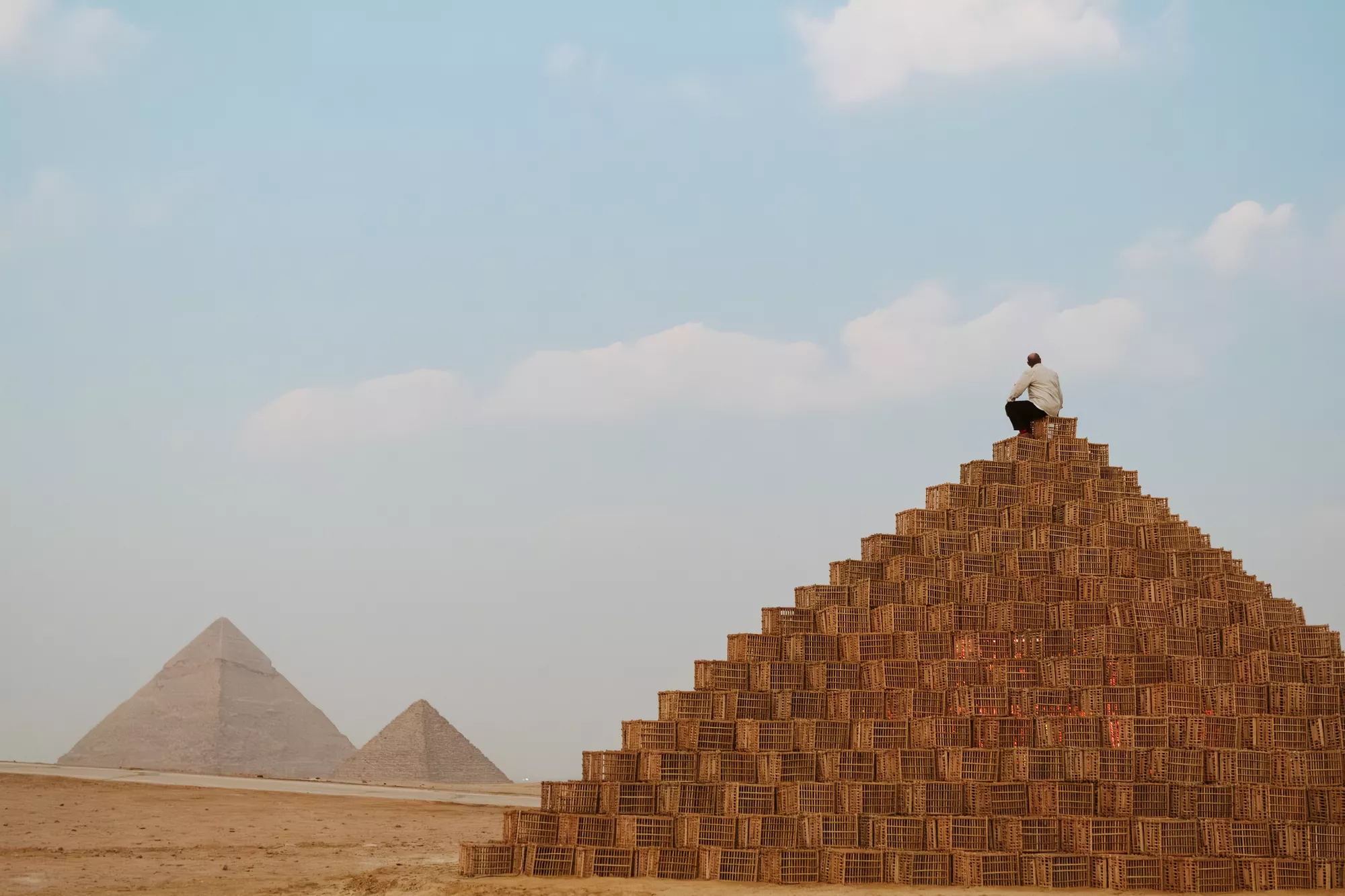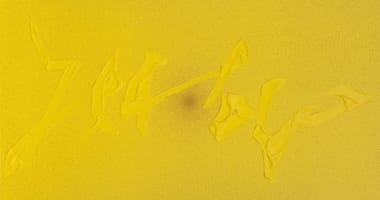With the art world calendar returning to pre-pandemic levels of frenzy, new cities are emerging as bonafide destinations for art lovers and professionals alike. From museum openings to thriving gallery scenes, new art fairs and bustling collector ecosystems, we list five cities off the art world’s well-beaten track that promise exciting creative encounters.
1. Busan, South Korea
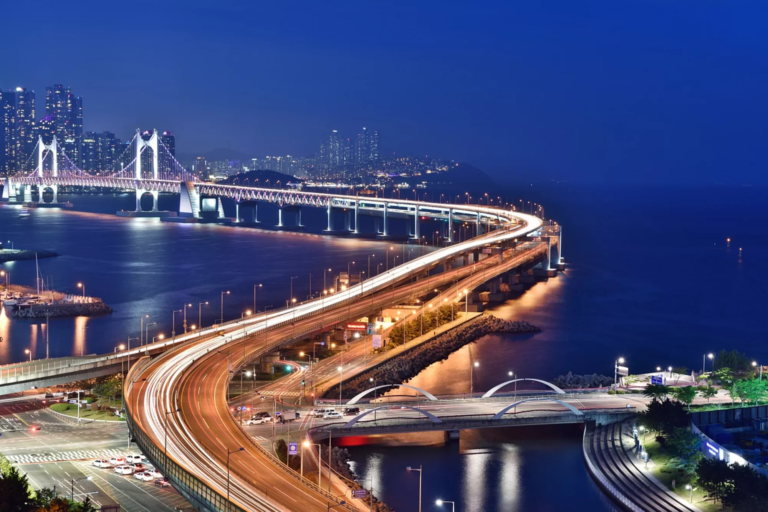
Image via Unsplash.
South Korea’s capital Seoul has seen a great deal of international art world attention since Frieze opened its satellite fair there in 2022, but the art scene across the country, in the southeastern city of Busan, is continuing to burnish its cultural credentials. As home to one of the world’s busiest ports, it is a cultural and economic gateway to Asia and beyond, leading it recently to bid to become the 2030 World Expo host city.
Busan’s coastal location, with beautiful beaches, has led luxury hotels and resorts, such as the Grand Josun, Ananti, and Banyan Tree, to expand in the city (and bring with them an influx of luxury brands and clientele); last year, Bloomberg called Busan the “Miami of South Korea.” Recent years have seen the opening of art spaces including Hyundai Motorstudio, F1963, and P-ARK, and plans are underway to build the Kim Chong-Hak Museum, a new digital art venue called Arte Museum, as well as several museums for private collections.
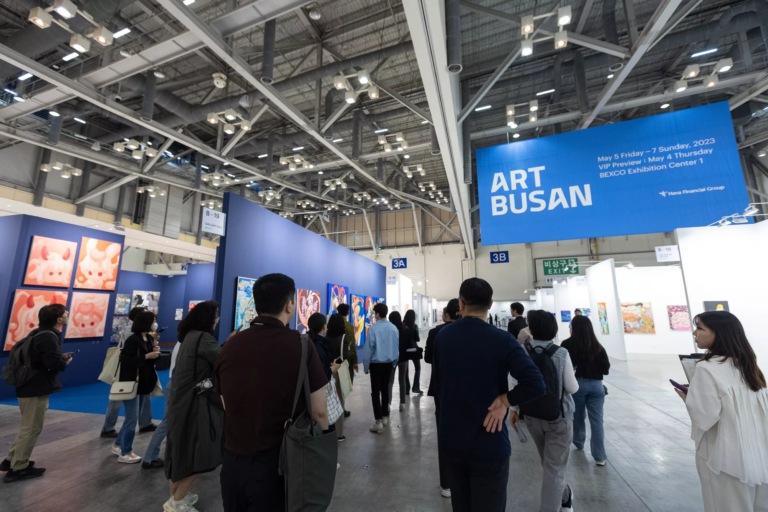
Interior view of Art Busan, 2023. Courtesy of Art Busan.
The vibrant environment is fertile ground for the Busan Biennale, which has been running since 1998 and takes place this year between August and November. There is also an increasingly active gallery scene in the city, with dealers including Art Sohyang, LEE & BAE, and Gallery Playlist among the standouts. The 13th edition of the art fair Art Busan will run in early May, too, with a strong showing of international galleries and a noticeable increase of dealers from other Asian art capitals (the gallery list is released in February). The fair continues to expand and is planning new projects in partnership with other cities, international art institutions, and brands.
2. Atlanta, United States
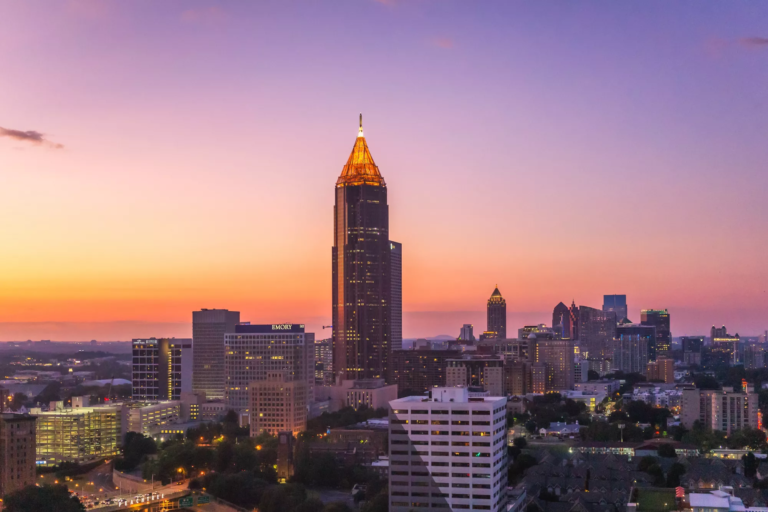
Image via Unsplash.
Atlanta is one of the U.S.’s fastest-growing cities, and its art scene is on the rise, too. Better known as a hub for music and sports—and, more recently, for film and technology—the gallery scene is growing in Atlanta, with United Talent Agency, Jackson Fine Art, and Wolfgang Gallery recently opening spaces.
While the city is home to a vibrant street art community, many grassroots initiatives (particularly artist residencies and studios), and the prestigious High Museum of Art, the Atlanta art scene has long felt underrecognized. The art advisor Kendra Walker launched Atlanta Art Week in October 2022 in the hopes of uniting the scattered art organizations and spotlighting the city’s cultural talents.
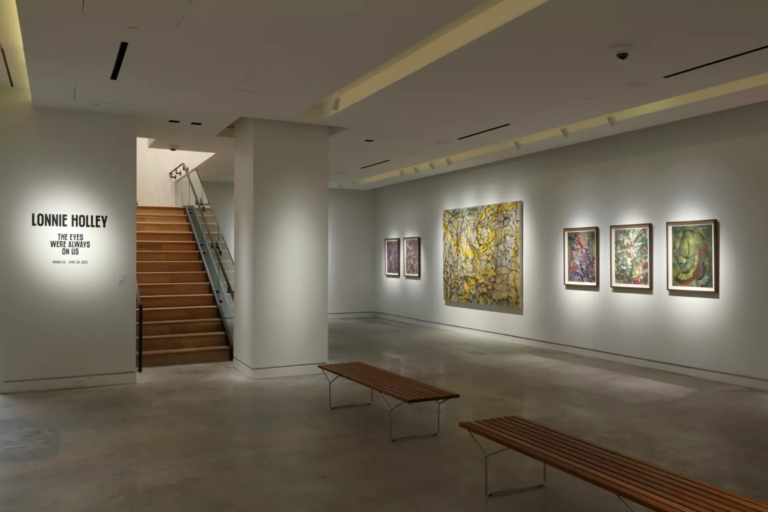
Lonnie Holley, installation view of “The Eyes Were Always on Us” at UTA Artist Space, Atlanta, 2023. Photo by Michael Jensen. Courtesy of UTA Artist Space, Atlanta.
That initiative had an immediate impact: During last year’s edition, it was announced that the city would soon have its own art fair. The inaugural Atlanta Art fair—co-organized by Art Market Productions and Intersect Art and Design—will take place from October 3rd through 6th at Pullman Yards, a former industrial complex now used as a film and entertainment venue. The fair will feature local galleries, artists, and curators alongside a roster of leading regional and national participants, public projects, and events.
3. Marseille, France
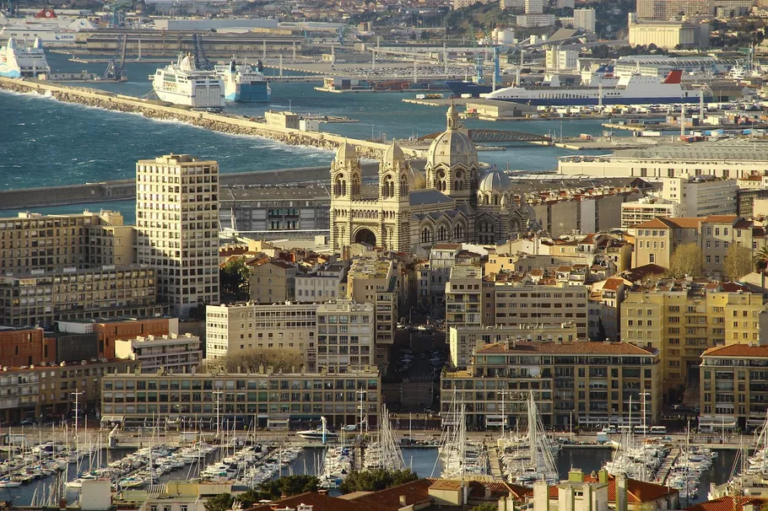
Image via Unsplash.
While Paris is France’s largest city and greatest creative hub, its second-largest city, Marseille, offers an alternative and more affordable opportunity for artists. Since the 2020 lockdowns, nearly 1 in 10 homebuyers in Marseille are from the capital region of Île-de-France. Located on France’s southern coast, Marseille is only a stone’s throw away from the glamorous resorts of Nice and Saint-Tropez. Time named the city as one of the world’s greatest places in 2022, stating that it was “fast becoming one of southern Europe’s leading cultural destinations.”
Lower-cost rents and greater availability of space have made Marseille an attractive spot for studio spaces—such as at the large converted tobacco factory La Friche la Belle de Mai—as well as residencies and many experimental and collaborative artist projects. For example, La Résidence Résiliente, an artist association that launched in 2020, has just announced that it will be opening a new 700-square-meter artist-run space in the Belle de Mai area.
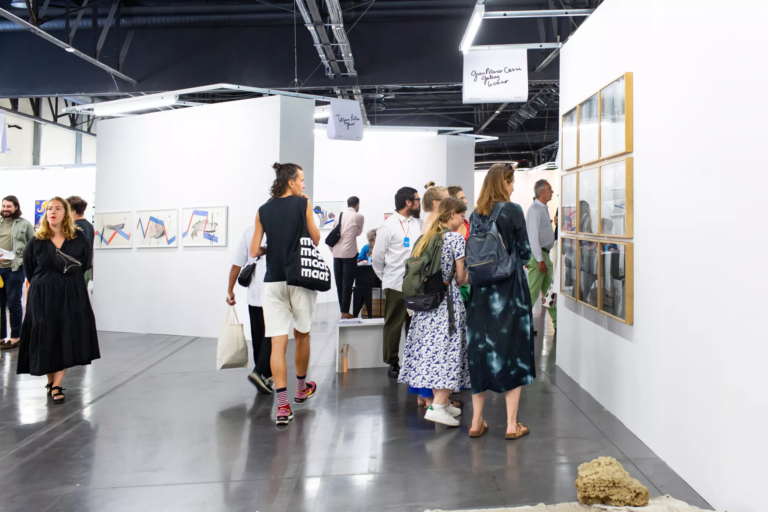
Interior view of Art-o-rama, 2023. Photo by Margot Montigny. © Margot Montigny. Courtesy of Art-o-rama 2023.
While many artists here choose self-representation or join collective associations, the gallery scene in Marseille is dynamic and includes names such as Galerie Kokanas, memòri gallery, Crèvecœur, GHOST Galerie, Galerie Kokanas, and Double V Gallery. The Art-o-Rama fair, which is returning this year (from August 30th through September 1st), is the largest fair in the South of France, and aims to support new or very young galleries. Last year also saw the reopening of the four-year-long, €5 million ($5.5 million) revamp of Marseille’s Museum of Contemporary Art.
4. Cairo, Egypt
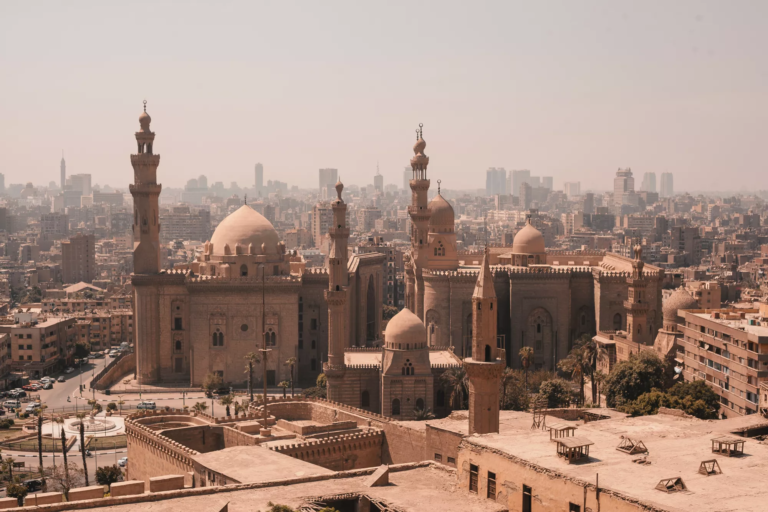
Image via Unsplash.
The art scene in the buzzing capital city of Egypt is often overshadowed by the enormous legacy of ancient Egyptian history and culture. Indeed, this year is expected to be the official opening for the Grand Egyptian Museum (GEM) in Cairo’s Giza province, beside the pyramids (parts of the site are already open to visitors but not the galleries). At around 500,000 square meters and with an expected cost of more than $1 billion, the GEM will be one of the world’s largest archaeological museums, housing more than 100,000 artifacts including the entire collection of Tutankhamun’s treasures. It is expected to open before May.
But the run-up to the GEM’s opening has spurred a flurry of creative activity beyond the world of archaeology. For example, the GEM building has hosted pop-up contemporary exhibitions such as the “Traces of Egypt” by the Egyptian German interdisciplinary artist Susan Hefuna. It also held the rebranded fair Art Cairo (previously Egypt International Art Fair) in 2023, which returns this year (February 3rd through 6th).
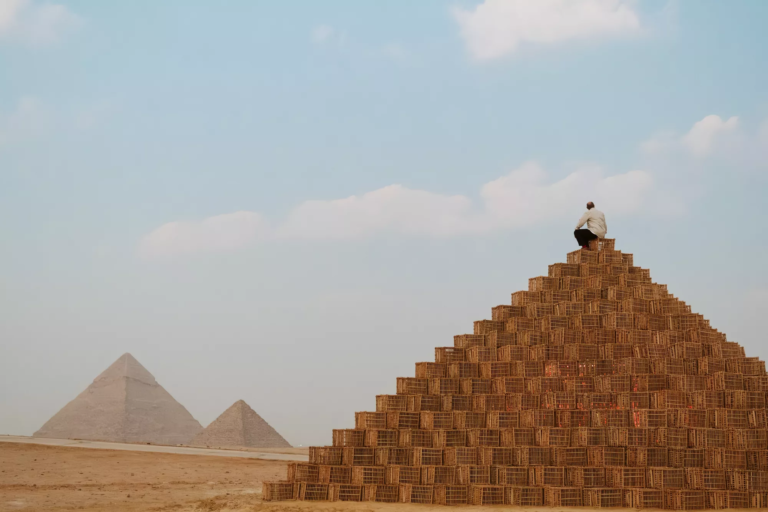
Exterior view of Rashed Al Shashai, Translucent Pyramid, 2023. Photo by Hesham Al Saifi. Courtesy of Art DEgypte.
Nearby the new museum, the private art organizations CulturVator and Art d’Egypte launched their annual sculpture exhibition “Forever is Now” in 2021. Held in the grounds of the Great Pyramids, artists such as JR, eL Seed, and Lorenzo Quinn have taken part, and this year will see its fourth edition.
Cairo is full of grassroots and independent art initiatives such as Townhouse Gallery and Darb 1718. Nonetheless, new projects continue to emerge, including a new residency program with Ard Art Institution, funded by the European Union.
5. Ibiza, Spain
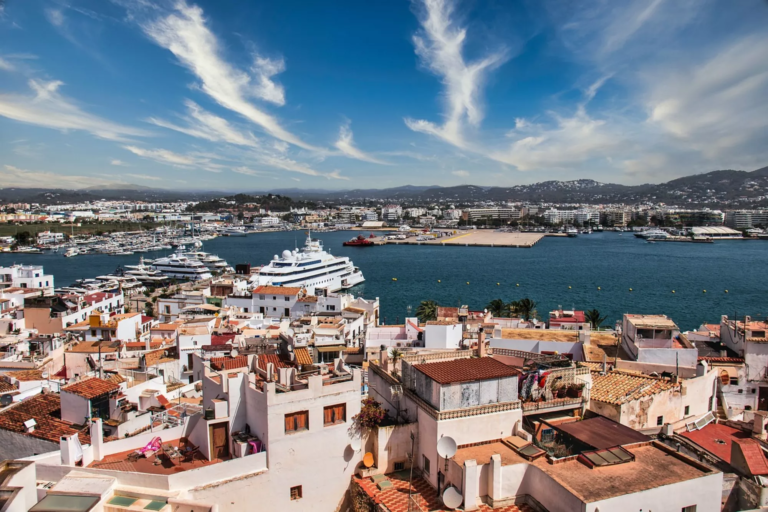
Image via Unsplash.
Beyond Ibiza’s world-famous clubs and frenetic nightlife is a chilled-out, hippie-esque vibe and artist haven. The CAN Art Ibiza fair launched in 2022, encouraging art collectors and dealers to enjoy a laid-back art fair experience that has a holiday feel to it—the ultimate antithesis of how fairs usually feel. Some manifestations of this are the fair’s opening hours, from 6 p.m. to 10 p.m., and evening DJ sessions. It returns in 2024 at the FECOEV event space just outside Ibiza’s fortified old town, but a little earlier in the year (June 26th through 30th) in the hopes of catching the crowds venturing to the island for the summer party season.
The fair has also begun off-site programming, with pop-up exhibitions and events in venues such as the Faro de ses Coves Blanques, located in a former lighthouse, and the cultural center at Sa Punta des Molì, housed in a restored windmill. New gallery spaces have emerged, such as Parra & Romero and Can Garita, the latter of which is housed in an old fisherman’s hut.
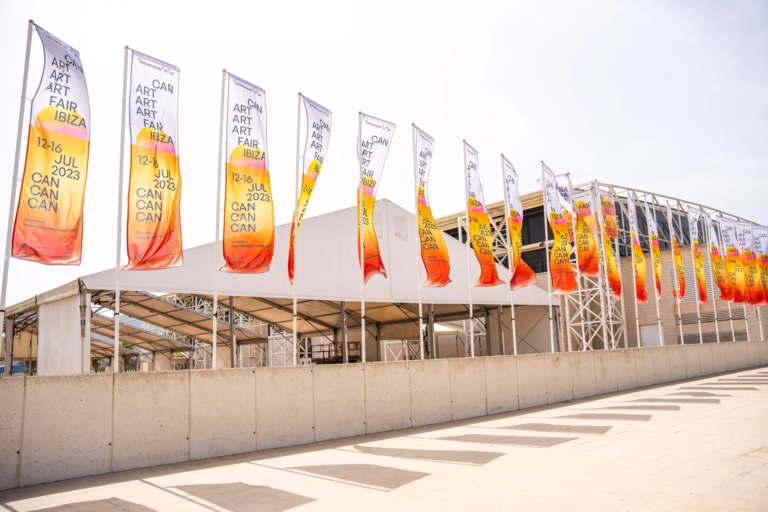
Exterior view of CAN Art Fair, Ibiza 2023. Photo by @YASMINARTVISUAL. Courtesy of CAN Art Fair.
Studio visits are one of the best ways to see Ibiza’s art, with many creatives drawn to the island’s warm climate and dramatic scenery (particularly post-COVID). These include co-founder of the ZERO movement Heinz Mack, local artist Jesús de Miguel, Australian painter William Mackinnon, and ceramists Rachel Weschke Sendzikas, Laura De Grinyo, and Yvette Spowers.
Las Cicadas Ibiza, a luxury holiday home located in a 500-year-old restored farmhouse, launched in 2020 and hosts groups of artists for residencies throughout the year. And in 2023, the Mexican artist Stefan Brüggemann opened a studio and residency space on a 30,000-square-meter plot on the island.
This article was written by Aimee Dawson.
